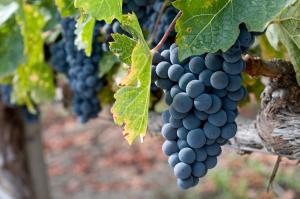Are Nursery Potting Plants BPA Free?
If you're an avid gardener or plant enthusiast, you're probably familiar with nursery potting plants. These are the plastic containers that are commonly used in nurseries and gardening centers to hold plants until they are transplanted to their permanent home. However, with the increasing concerns over the safety of plastic products, many people are asking, "are nursery potting plants BPA free?"
What is BPA?
BPA stands for Bisphenol A, which is a chemical that is often used in the manufacturing of plastic products. It has been widely used for years to make everything from water bottles to food containers, but there is growing concern over its potential health effects. In some studies, exposure to BPA has been linked to a range of health problems, including cancer, obesity, and reproductive issues.
Are Nursery Potting Plants Made with BPA?
While BPA is commonly used to make plastic products, it's important to note that not all plastic containers contain this chemical. In fact, many nursery potting plants are now made with BPA-free materials. This is partly due to the increasing public awareness of the potential health risks associated with BPA, and partly due to new regulations and guidelines that require manufacturers to use safer materials.
How Can You Tell if Nursery Potting Plants are BPA-Free?
If you're looking to buy nursery potting plants, it's important to know how to tell whether they are made with BPA-free materials or not. The easiest way to do this is to look for labels or certifications that indicate that the products are BPA-free. Many manufacturers will proudly display this information on their packaging or on product labels, so it's worth taking a moment to read the packaging before making a purchase.
If you can't find any information on the packaging, there are a few other ways to tell whether a plastic container contains BPA. One simple method is to look for the recycling code on the bottom of the container. If the code includes the number 7, this may indicate that the product contains BPA. However, it's important to note that not all products that contain BPA will be labeled with a recycling code of 7, so this method isn't foolproof.
The Benefits of Using BPA-Free Nursery Potting Plants
While there is still some uncertainty around the potential health risks associated with BPA, many people are choosing to err on the side of caution and avoid products that contain this chemical. Using BPA-free nursery potting plants can help to reduce your exposure to this chemical, and may provide some peace of mind when it comes to the safety of your plants.
Additionally, BPA-free materials may be better for the environment. Some studies have suggested that BPA can leach out of plastic products and contaminate the soil and water. By using BPA-free nursery potting plants, you can help to reduce the amount of this chemical that is released into the environment.
In Conclusion
When it comes to nursery potting plants, many consumers are rightfully concerned about the potential health risks associated with BPA. While not all plastic containers contain this chemical, it's important to check labels and packaging to ensure that you are using products that are safe and free of harmful chemicals. Choosing BPA-free nursery potting plants can help to reduce your exposure to BPA, and may provide some peace of mind when it comes to the safety of your plants and the environment.

 how many times do yo...
how many times do yo... how many planted tre...
how many planted tre... how many pine trees ...
how many pine trees ... how many pecan trees...
how many pecan trees... how many plants comp...
how many plants comp... how many plants can ...
how many plants can ... how many plants and ...
how many plants and ... how many pepper plan...
how many pepper plan...


























